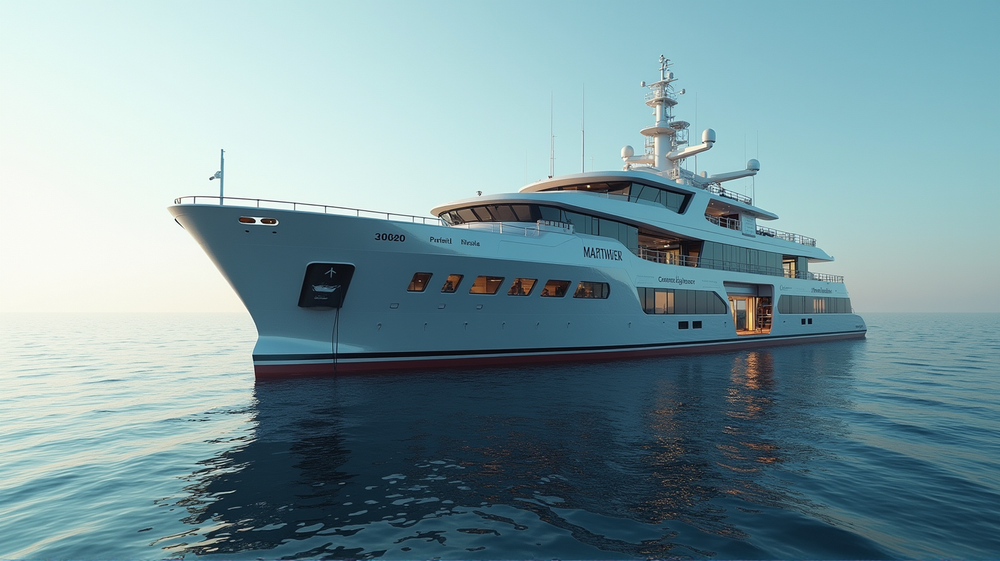The Dutch offshore construction engineering giant, Allseas, has embarked on an ambitious five-year journey that could redefine energy solutions within the maritime industry. At the heart of this venture lies the deployment of small modular reactors (SMRs) tailored for integration into both offshore vessels and onshore settings, marking a potential turning point for sustainable energy practices.
High-Temperature Gas-Cooled Reactors: A Safer Future
Allseas is setting its sights on high-temperature gas-cooled reactors (HTGRs), employing the advanced TRISO particle fuel technology. These reactors promise an output of around 25 MWe, a capability chosen for its inherent safety features. The promise of such compact yet robust power generation aligns with Allseas’ sustainability targets of cutting 30% of its emissions by 2030 and achieving net-zero operations by 2050.
The Five-Year Plan: Intricate Steps to Innovation
In the initial year, the focus will be on wrapping up the design studies pertinent to both offshore and onshore use. According to World Nuclear News, Allseas’ journey continues with prototype development and discussions with key entities, including regulators and maritime organizations. This approach ensures that all safety and compliance standards are not just met, but set a precedent.
Dedicated Partnerships for Groundbreaking Research
The deployment of these SMRs has seen Allseas collaborate with esteemed institutions such as TNO, NRG-Pallas, and TU Delft. These partnerships are pivotal in laying down a research and innovation foundation integral to the project’s success. Jan Leen Kloosterman of TU Delft highlighted the university’s decade-long endeavor in microreactors, which dovetails seamlessly into this large-scale commercial venture.
Responsible Waste Management: A Sustainable Approach
Central to the SMR lifecycle is responsible waste management. Allseas is exploring recycling and circular methodologies aimed at repurposing components like graphite and used TRISO fuel. The aim is to minimize environmental impacts, a theme resonating deeply through their long-term strategy.
A Visionary Step for Maritime and Beyond
The shipping industry’s staggering carbon footprint of 350 million tonnes of fossil fuel consumption each year paints a pressing picture. But with the International Maritime Organization’s new 2050 net-zero emissions target, the tide is changing. Allseas’ nuclear initiative offers a glimpse of a cleaner, stable, and scalable future.
The strategic deployment of SMRs isn’t just a significant leap for marine transportation; it presents opportunities for onshore industrial resilience too. For sectors nestled in industrial clusters, this innovation could relieve grid stress while ensuring a carbon-free energy supply, driving economic competitiveness.
Allseas: Leading the Charge into a Nuclear-Powered Future
Stephanie Heerema of Allseas encapsulates the spirit of innovation at play, “Nuclear is the next frontier…with a can‑do mentality, we have a proven track record of turning groundbreaking concepts into reality.” Allseas is indeed setting a bold precedent, reflecting a future where safety, sustainability, and cutting-edge technology go hand in hand.












